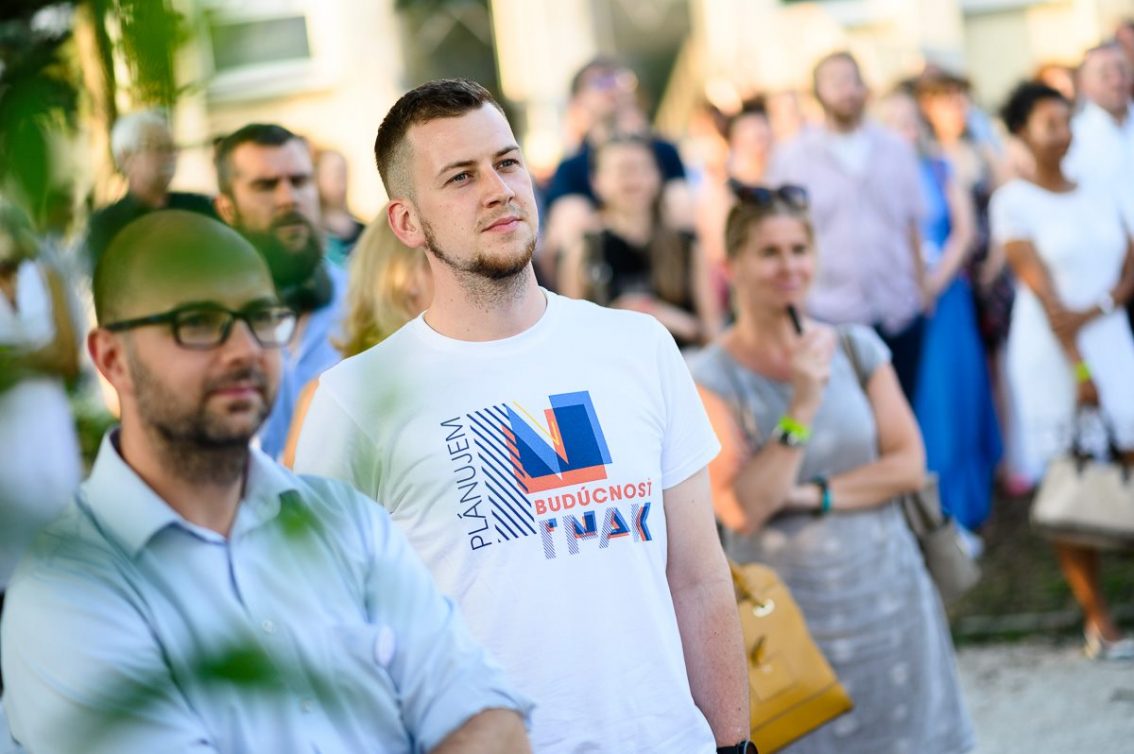Arnold Kiss, an expert in soft skills: The biggest problem is when school isolates children from reality
"When I taught in a primary school, I experienced first-hand how sensitively children react to being confronted with reality. All you have to do is show them something they can aspire to, and they often take on topics and look for solutions," says Arnold Kiss, who is the guarantor of the Open Future programme for soft skills. In this interview, you will learn how children perceive problems in their surroundings and communities, what they need after the pandemic, and what we will focus on in our Open Future programme.
What skills do you consider to be the skills of the future, and how do we get them to each student?
The skills of the future are a bit of fortune-telling. We know some skills that we will use, some we do not. We cannot predict exactly what jobs children who are now entering kindergarten and who will enter the labour market in 13-18 years will look for when they grow up. However, if there are skills that need to be developed one way or another, it is self-reflection and self-development. This is also known as self-directed a self-determined learning. Further, the skills of the future are also those about which we can predict that they will be necessary for the near future, such as digital skills, business skills, communication skills and the like.
However, there is a clearer answer to the second question. We need education and the school system with formal and informal elements which ensure both that children get a good common ground and that children who decide to go a particular path or choose a particular career have the opportunity to develop the skills that the formal education system does not develop. To do this, we need quality teachers and school leadership, quality faculties of pedagogy, and to make sure that teachers not only have the skills themselves but also know how to develop them using quality didactics.
What do children need in the time after the pandemic? Why is it necessary to place more emphasis on experientiality in education and to better link non-formal and formal education?
In my opinion, one of the priorities must be a quality assessment of the situation, as the children were negatively affected during the pandemic by poor access to school and education. It is one thing to count the number of classes and topics they missed, but it is another to look at it in terms of the needs of socialising and spending time with peers in an environment where children are supervised. Some kids will be fine. However, some children will need to intensively “catch up” with what they have missed, and this “catching up” cannot take as much time as the absence. We need to evaluate what is most important in our curricula and give it to children in the form that is most digestible for them. And this is not frontal teaching and rote learning, but experientiality and combining teaching methods.
How will the programme deal with the obstacles and consequences of the pandemic?
The versatility of the approach, the individual consideration of needs, and the more digestible forms of education that are made possible by the kind of people who run the programme. These people have my great respect for their approach. But if I should be more specific, it is a combination of coping with a pandemic situation by creating a safe environment where children can talk about what bothers them and advise each other, but also get advice from adults who understand them. Furthermore, it is a preference for those parts of the curriculum that will allow them to adapt to the current situation as much as possible.
What is the most important thing that children will learn in the third year of the Open Future programme?
To choose their own path in education and lead their own development.
In the third year, children will work on their own social innovation, which should help solve a problem in their surroundings and their communities. How to sensitise young people to the needs of their communities, and why is it important?
When I taught in a primary school, I experienced first-hand how sensitively children react to being confronted with reality. All you have to do is show them something they can aspire to, something that concerns them, illustrate the challenges for both Slovakia, Europe or the world, and they often take on topics and look for solutions. In my opinion, the biggest problem is when the school operates as an institution that isolates children from reality or shows them a distorted picture. Therefore, in the Open Future programme, we put the emphasis on giving children the opportunity to verify how things really are and to evaluate what could be done about it.
Who is Arnold Kiss?
 Arnold is an enthusiast of Slovak education. He is also a trainer and consultant at Maxman Consultants, which has focused on soft skills in business for 25 years and helps non-profit educational organisations reach their full potential. Arnold is a graduate of the Teach for Slovakia programme and a professional guarantor of the Open Future for soft skills.
Arnold is an enthusiast of Slovak education. He is also a trainer and consultant at Maxman Consultants, which has focused on soft skills in business for 25 years and helps non-profit educational organisations reach their full potential. Arnold is a graduate of the Teach for Slovakia programme and a professional guarantor of the Open Future for soft skills.
We can strategically develop the Open Future programme at the Pontis Foundation thanks to the Telekom Endowment Fund, our general partner.
Arnold Kiss was interviewed by Miriam Šelepová, a project manager of the Open Future programme. The text is part of a series of interviews with professional guarantors of the programme. The interviews aim to demonstrate how we work with children, what they learn and what skills we emphasise.






